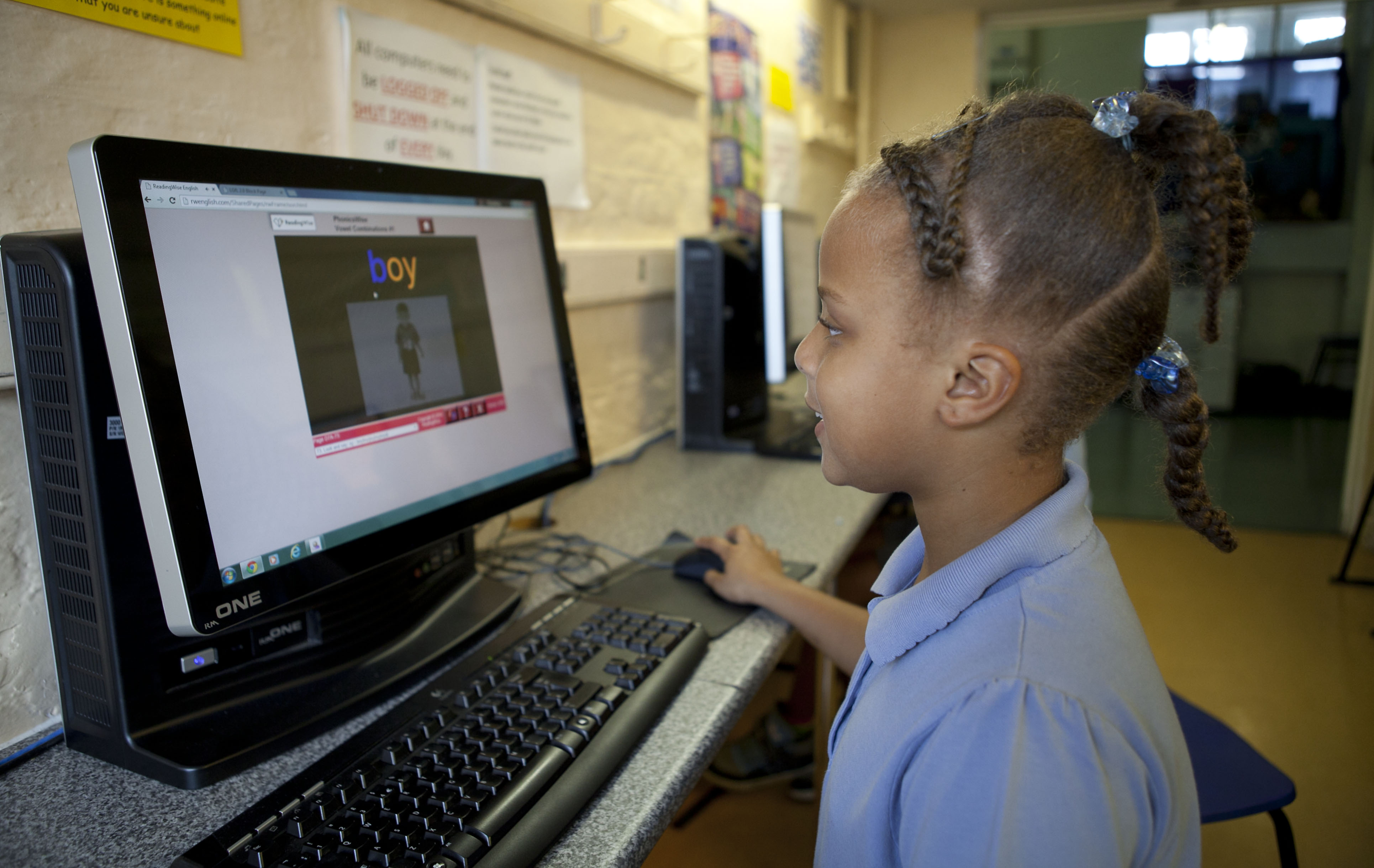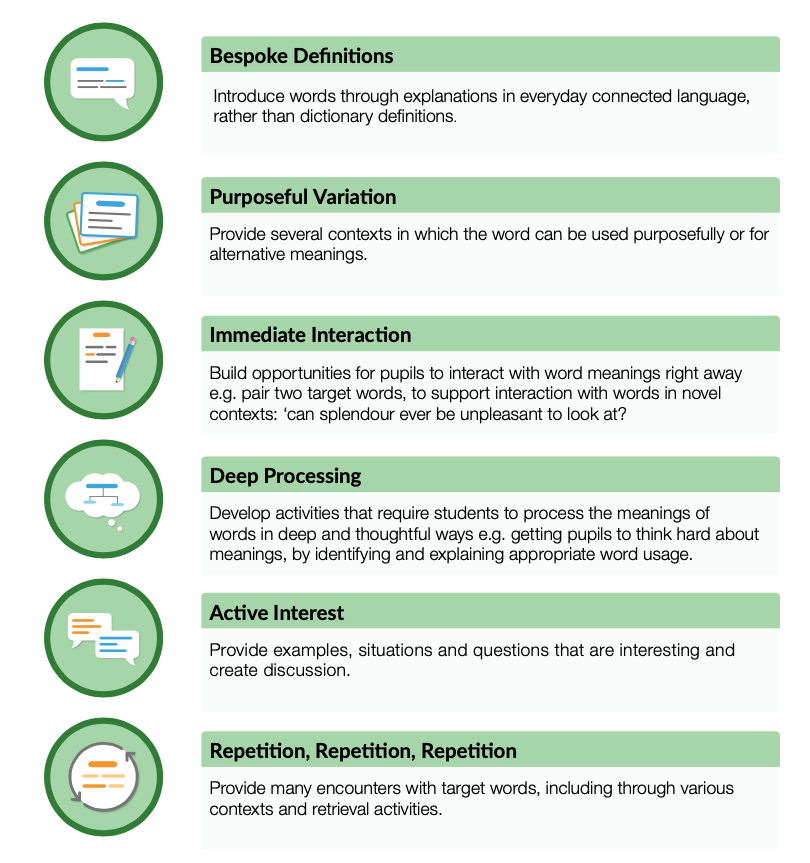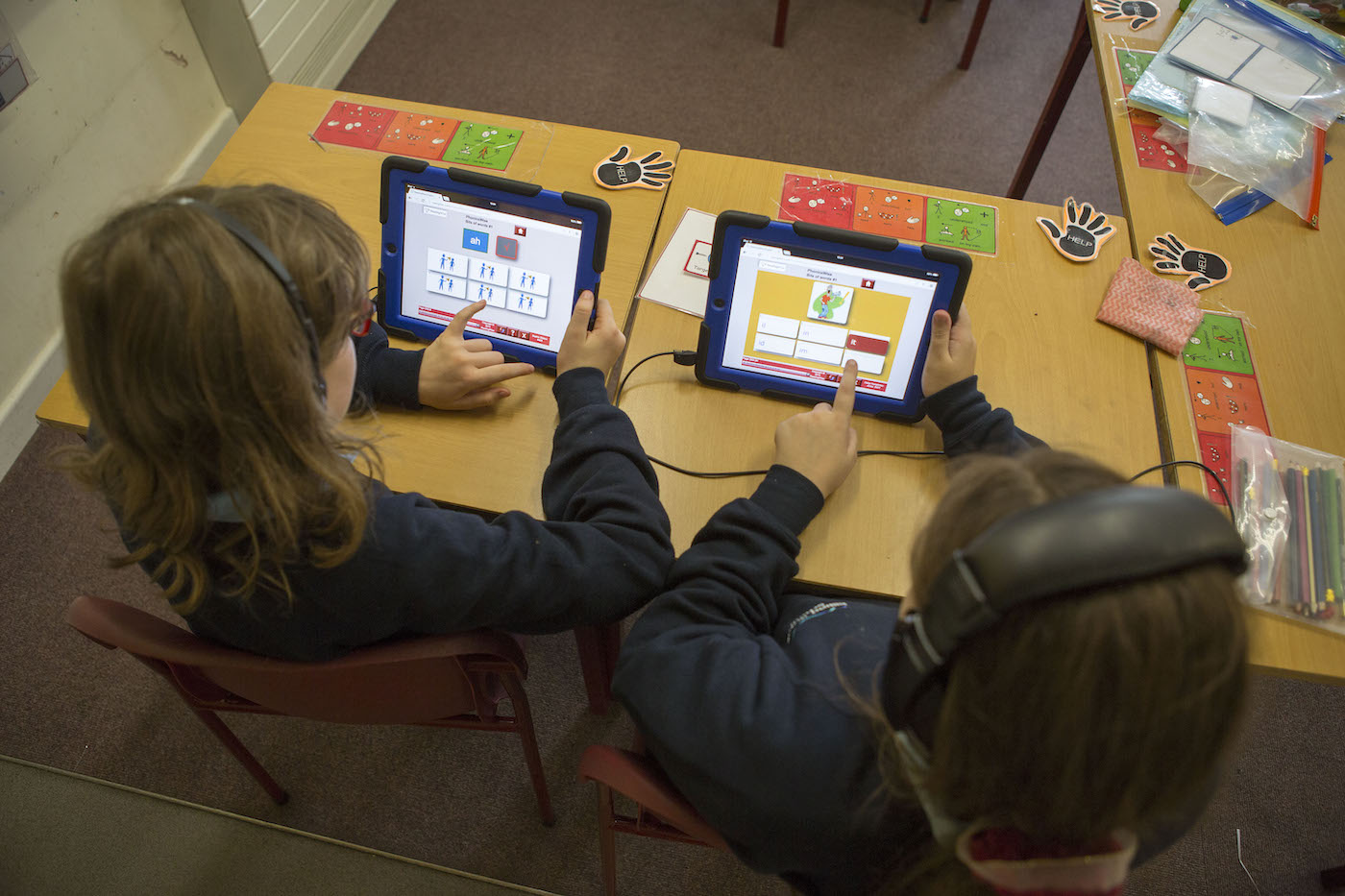As the EEF says , “Teaching vocabulary is hard! Harder than we might first imagine.”
Teaching children vocabulary, as an integral part of teaching children English at every age is balancing and blending the following:
- Meanings, as words can have more than one (semantics)
- Sound patterns (phonology)
- How to build words (morphology)
- How the word is written (orthography)
- How to arrange words to form sentences (syntax)
- How to use words (grammar)
Vocabulary starts with the basics, Phonics, which is taught from reception year upwards. As children start to understand words, what they mean, how to speak them, and how to write them, phonics evolves into learning the breadth and depth of vocabulary.
Vocabulary is an integral part of how English (and every other language) is taught in primary and secondary schools.
Teaching vocabulary, and every aspect of English is more challenging when:
- Children struggle with reading because English isn’t their first/native language and it’s not used much at home, so they’re speaking English as Another Language (EAL).
- Children with Special Educational Needs and Disabilities (SEND) can also struggle with reading, especially if their disabilities are learning-related.
- Children haven’t been brought up with parents or guardians reading to them, so there’s no love for reading instilled into them, or they simply don’t enjoy it.

What’s an effective vocabulary teaching method?
There are many ways to teach vocabulary. Teachers, TAs, and SENDcos need to get more creative and try different approaches and interventions when they’ve got students who are struggling to grasp literacy concepts, such as vocabulary.
The Educational Endownment Foundation (EEF) recommends the following approach (find out more in the EEF’s suite of literacy guidance reports here):
Bespoke Definitions: Introduce words in ways that children (for their resective age and abilities) will understand, rather than a bland dictionary definition.
Purposeful Variations: Provide several contexts for a word, e.g., how it can be used, or different versions of the word in use.
Immediate Interaction: Make it so pupils can interact and use words to give them more meaning, or pair two very different words in a sentence.
Deep Processing: Get children to think about what a word comes from, what it means, and how it can be used.
Active Interest: Provide interactive experiences with new words so they come to life through examples, situations, and questions.
Repetition, Repetition, Repetition: One of the most valuable approaches when it comes to teaching new words is ensuring children repeat them so they become embedded.
Here is the EEF poster for more information:

The above approach is based on Beck and McKeown in their book, Bringing Words to Life: Robust Vocabulary Instruction.
How can you help primary and secondary school children struggling to understand vocabulary?
If you’re looking for an evidence-based literary intervention solution for vocabulary, then look no further than the ReadingWise Vocab module.
Vocab is an online vocabulary programme for all pupils in your school. Used widely by primary schools, secondary schools, multi-academy trusts and local authorities, Vocab offers tens of thousands of words and their corresponding defintions, synonyms, antonyms, example sentences, supporting images and audio support.
Vocab is one of our literacy modules, which have benefitted over 300,000 pupils over the last decade.
You can also supplement Vocab with our Learner’s Library , really helping instill a love for reading in children from an early age.
What are the Benefits of ReadingWise Vocab?
Our Vocab intervention leads to consistent practice (repetition x3), and helps your pupils to remember the new words they encounter in class and to learn and use tier 2 words that are less frequently taught.
- Bespoke: Embed the target vocabulary from your curriculum into our powerful programme. Reinforce the right words at the right time.
- Time-saving: With thousands of words already in our system, your staff can save days of preparation.
- Cross-curricular: Along with tier 2 vocabulary, the programme has thousands of subject-specific tier 3 words and phrases to support disciplinary literacy.
- Embed vocabulary in pupils' memory: The Vocab programme ensures pupils revisit words at strategic intervals to interrupt the forgetting curve and to maximise remembering.
With Vocab, you and your fellow teachers are bringing words to life in the classroom. You are providing the all important context. Then Vocab backs up your effort by helping to embed the words in pupils' long-term memories.
“There is much evidence – strong correlations, several causal studies, as well as rich theoretical orientations – that shows that vocabulary is tightly related to reading comprehension across the age span…”
Bringing Words to Life, Beck, McKeown, and Kuchan (2013)

How can you deliver Vocab?
It is quick and easy to set up and run Vocab in your school. Each pupil will have their own username and password. You and your staff will allocate specific word lists that you are targeting.
Training and Support: We provide ongoing support and 2 hours of online training for every module a school decides to implement.
Teaching Sessions: Short, regular sessions are most effective. We suggest 10-minute sessions 3-5 times a week ⏤ at home, at school, or a mix of both.
Vocab Modes: There are two modes to choose from when using ReadingWise Vocab.
#1: Vocab Task Mode: You are able to set tasks (think homework) for pupils. These tasks can be allocated a due date. Many schools use this to help organise the programme to compliment their curriculum and to use the programme to harmonise and reinforce the teaching and learning happening in the classroom.
#2: Basic Flow Mode: Alternatively, you can allocate word lists in basic flow mode. This allows pupils to progress through the target words and the system personalises the content over time to reflect their security of each word. An example of a large word list is our tier 2 word list, which has over 1,000 words.
Pupils access the programme regularly and revisit words over time. At the same time, teachers can allocate a word list from a book or topic that is being studied, for example 'Holes Word List' or 'Science Year 3 Words'. Pupils would then focus on the Holes or Science words until complete, then resume the tier 2 list.
Who is Vocab for?
Vocab is a literacy programme for pupils aged 6 - 16 (years 2 up to 11) used by primary schools, secondary schools, multi-academy trusts, local authorities, and other school groups.
Teachers, literacy leads and SENDCos can decide on the target word lists, so that you can be confident that pupils are working on the vocabulary that best reflects both their needs and the needs of the curriculum.
The programme comes ready with an exhaustive list of tier 2 words through to complex academic words and vocabulary from books such as 'Of Mice and Men.' You can view our large tier 2 word list here.
Dyslexia support: We work to ensure that ReadingWise is accessible for everyone by default, with dyslexia-friendly font and audio support that comes as standard. Both can make a massive difference for pupils who are struggling to read.
For more information, see our dedicated Vocab module page.
"As a school, we ended the year 22-23 with an outstanding 90%+ fluent readers across year groups 7-11.
We made a remarkable 18% impact in reading following the launch of Star’s World Class Book Culture Programme.
Since implementing ReadingWise in our curriculum, we have observed a substantial improvement in the students' vocabulary acquisition. The interactive and engaging nature of the software has captivated their interest, making the learning process enjoyable and effective. The Vocab module has proven positive outcomes as it contributes significantly to our pupils’ overall language proficiency.
In addition to the software having a pupil-friendly interface, we have found that coupling ReadingWise programmes with regular literacy assessment has incentivised engagement for learners; the faster they progress, the quicker they graduate from the modules.”
Sumaya Omerji, Assistant Principal, Quality of Education and Book Culture Lead, Eden Boys' Leadership Academy (a Star Academy secondary school in Manchester)
Find out more about how ReadingWise supports multi-academy trusts (MATs).
Find out more about our:
Boost your school's literacy results: Arrange your 20-minute demo at a time to suit you.
We highly recommend you spend 20-minutes running through the programme with our friendly and knowledgeable team by booking a demo to suit your diary









